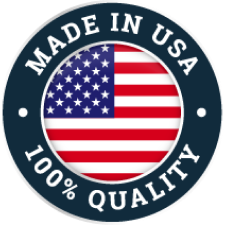
Maintaining good indoor air quality is crucial for creating a healthy and comfortable environment. Air filters play a significant role in removing airborne pollutants and contaminants, improving the air we breathe. However, their impact goes beyond just purifying the air. Energy efficiency is a growing concern in today’s world, and the right choice of air filters can contribute to substantial energy savings while enhancing the overall indoor environment.
Indoor air pollution can be considerably higher than outdoor air pollution due to the accumulation of pollutants in enclosed spaces. Air filters integrated into HVAC systems help trap particles like dust, pollen, mold spores, harmful gases, and volatile organic compounds (VOCs). By effectively removing these pollutants, air filters create a healthier indoor environment, promoting better respiratory health and overall well-being for occupants.
The efficiency of air filters has a direct impact on the overall energy consumption of HVAC systems. Filters with higher resistance to airflow can lead to increased energy usage, as the HVAC system works harder to maintain adequate air circulation. Consequently, this higher energy demand results in increased utility bills and operational costs.
On the other hand, opting for air filters with low resistance to airflow can significantly improve energy efficiency. These filters allow air to pass through more easily, reducing the workload on the HVAC system and resulting in energy savings. When the HVAC system operates efficiently, it not only reduces energy costs but also extends the lifespan of the system, leading to additional savings in maintenance and replacement expenses.
Understanding the different types of air filters and their impact on energy efficiency is crucial in making informed decisions for indoor environments. Filters are typically classified based on their Minimum Efficiency Reporting Value (MERV) rating, which indicates their effectiveness in removing particles from the air. Higher MERV-rated filters provide better filtration but can also lead to higher energy consumption.
By selecting filters with low resistance to airflow, appropriate MERV ratings, and investing in regular maintenance, businesses and homeowners can reduce energy consumption, lower utility bills, and create a healthier indoor environment. Embracing the synergy between air filters and energy efficiency is a wise choice that promotes both economic and environmental well-being.
